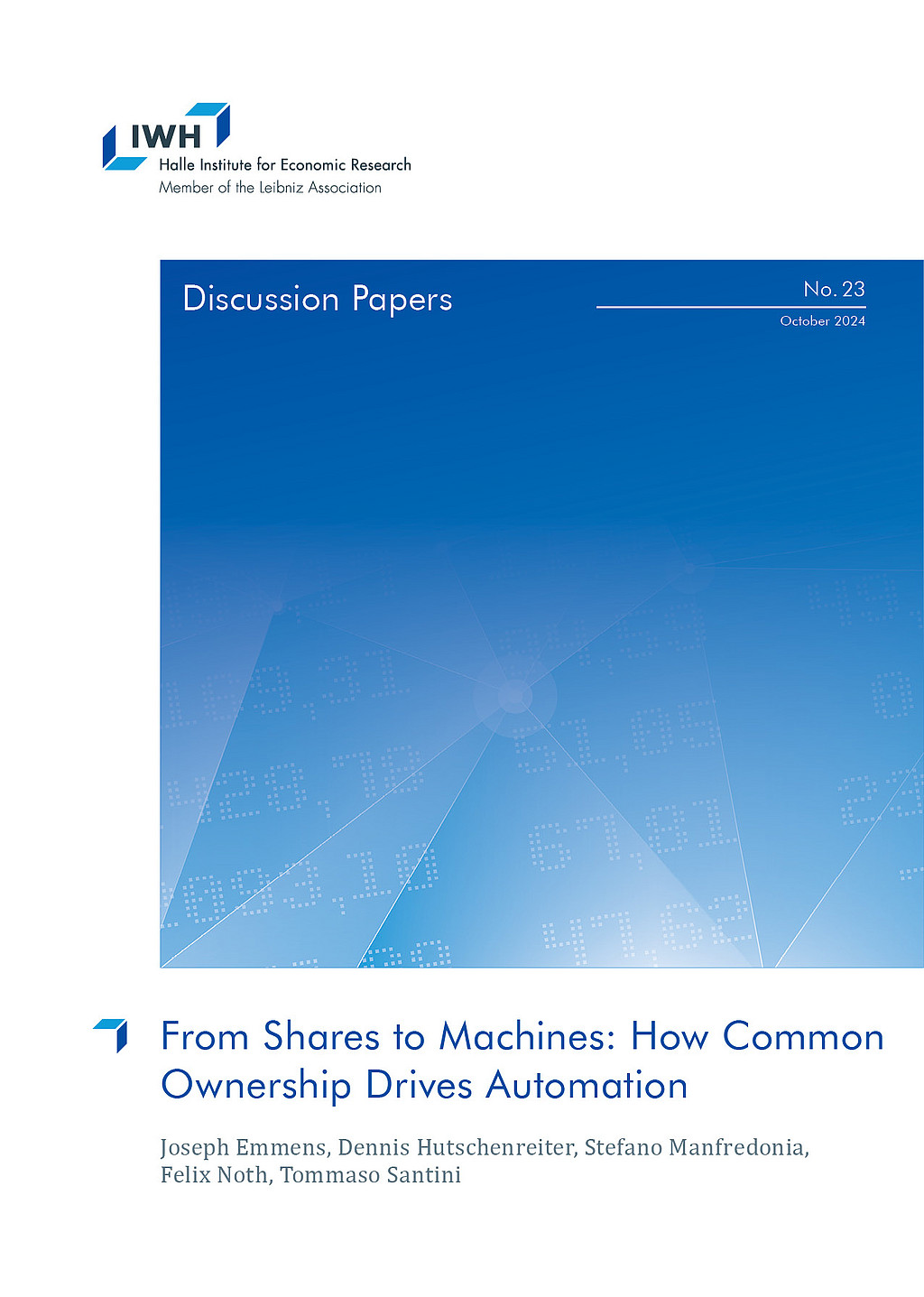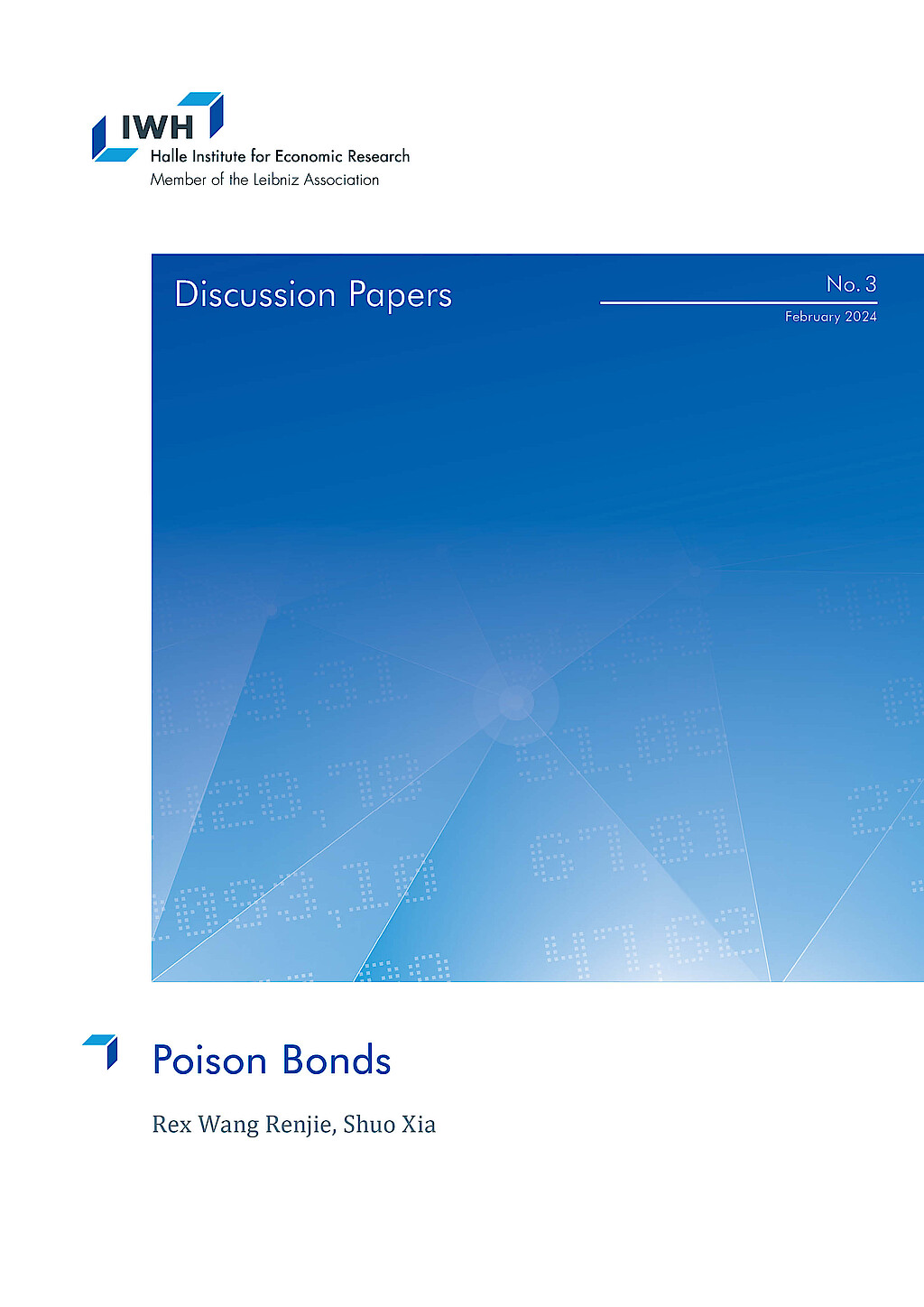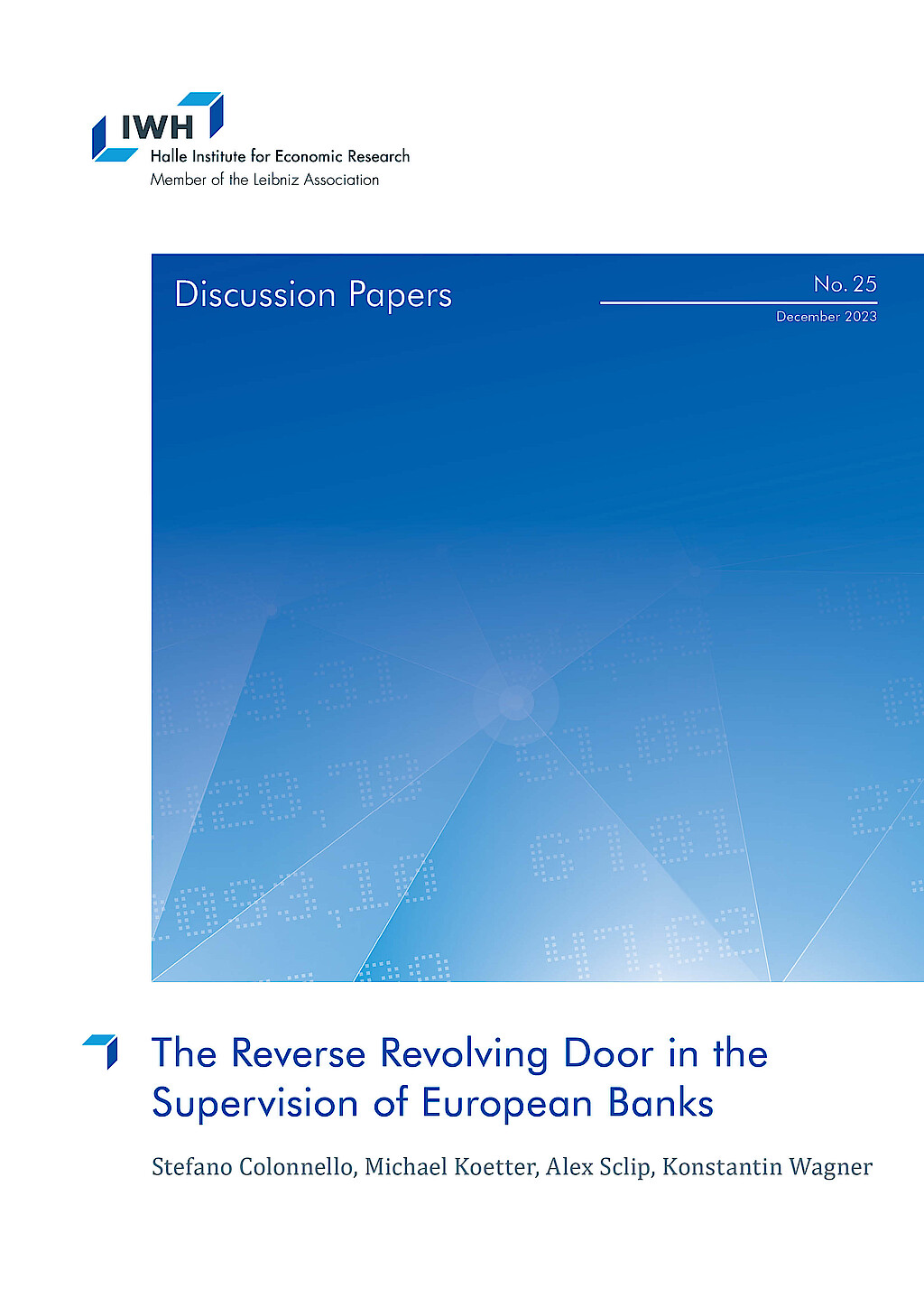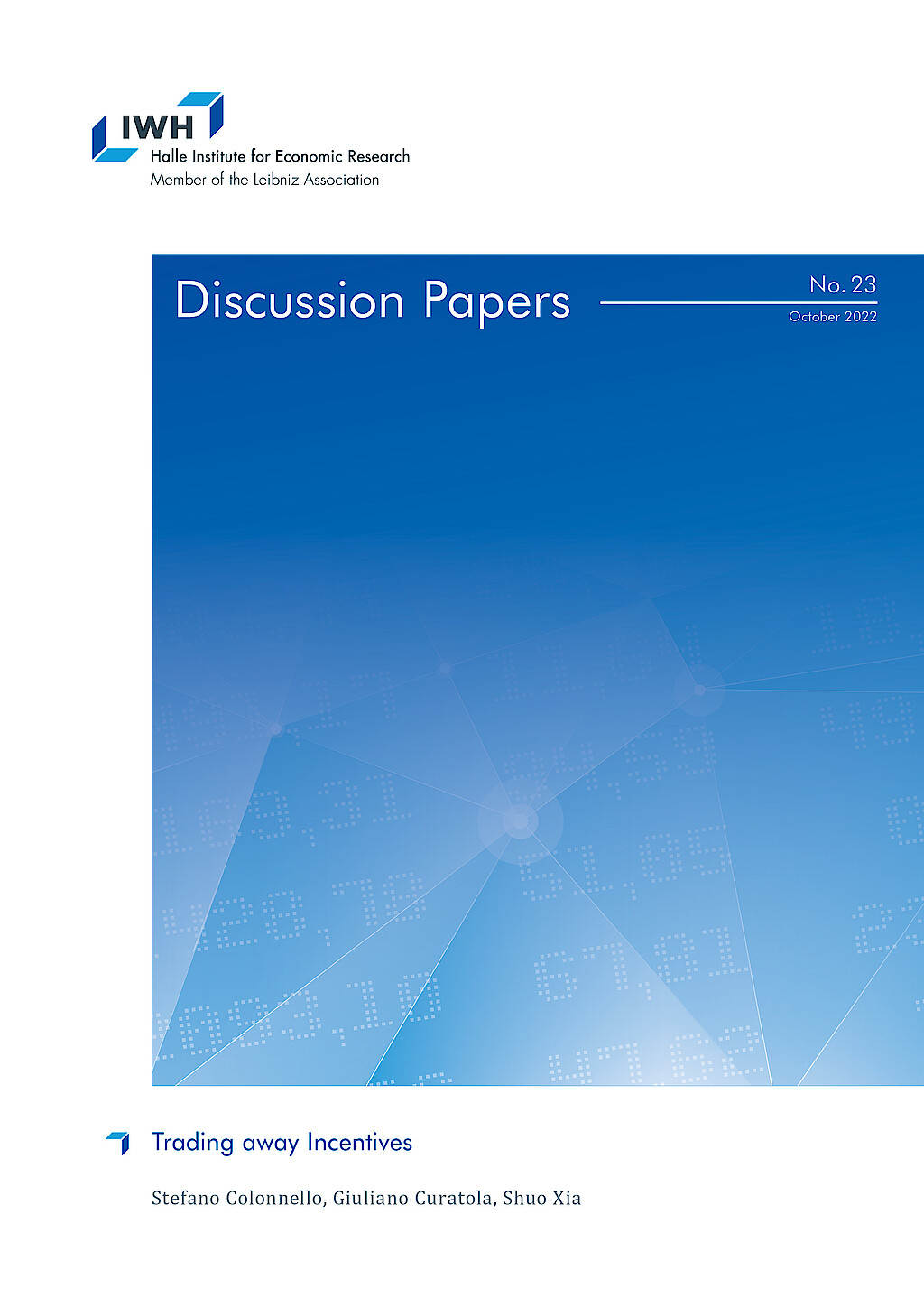Governance and Finance
In recent decades, corporate governance no longer focuses on maximizing shareholder value but on balancing all stakeholders' interests. Corporate governance is then viewed more broadly as the nexus of rules, practices, and processes that determine the objective of a firm. Absent good governance, shareholders might realise inferior returns, creditors might lose interest payments, business partners might suffer from contract breaches, and employees might lose their future career opportunities (e. g., managers that used to work for Enron). High-quality governance ensures that all stakeholders' capital is effectively managed. Firms benefit from good governance in various ways, such as a higher valuation, a lower cost of capital, better talent attraction, and higher customer loyalty, for example.
The research group “Governance and Finance” studies traditional and modern views of corporate governance in financial markets and contributes to the literature in two ways. First, it contributes to understanding the effectiveness of different governance mechanisms' roles in talent selection, incentive, and retention. Individuals carry out corporate objectives, and good governance must ensure that the most qualified talent is allocated to the optimal position, exerts optimal effort, and stays with the firm. For example, the most important duty of the board of directors is to select, incentive, and retain the most talented/suitable CEO.
Second, this group also investigates how various forces in credit market impact corporate governance. Various stakeholders seek to influence corporate strategy differently with recent advances in the financial market. For example, the rise of common ownership might reduce firms' incentives to compete, the increase of active ownership might suddenly switch firms' investment strategies (i. e., shareholder activism), and the participation of shareholders in the credit market provides opportunities to internalise the shareholder-creditor conflicts. This group's research seeks to advance the knowledge of different stakeholders' methods and their effectiveness in influencing governance objects.
Workpackage 1: Talent Selection, Incentive, and Retention
Workpackage 2: Stakeholders and Governance
Research Cluster
Financial Resilience and RegulationYour contact

- Department Financial Markets
Refereed Publications

COVID-19 Pandemic and Global Corporate CDS Spreads
in: Journal of Banking and Finance, February 2023
Abstract
We examine the impact of the COVID-19 pandemic on the credit risk of companies around the world. We find that increased infection rates affect firms more adversely as reflected by the wider increase in their credit default swap (CDS) spreads if they are larger, more leveraged, closer to default, have worse governance and more limited stakeholder engagement, and operate in more highly exposed industries. We observe that country-level determinants such as GDP, political stability, foreign direct investment, and commitment to crisis management (income support, health and lockdown policies) also affect the sensitivity of CDS spreads to COVID-19 infection rates. A negative amplification effect exists for firms with high default probability in countries with fiscal constraints. A direct comparison between global CDS and stock markets reveals that the CDS market prices in a distinct set of corporate traits and government policies in pandemic times.

Trust and Contracting with Foreign Banks: Evidence from China
in: Journal of Asian Economics, December 2022
Abstract
We empirically investigate whether firms doing business in regions characterized as having high social trust receive preferential treatment on loan contractual terms by foreign banks. Tracing cross-border syndicated lending activities in China, we document that firms located in provinces with higher social trust scores obtain significantly low costs of bank loans and experience less stringent collateral requirement. To address the potential endogeneity issues, we adopt an instrumental variable approach and a two-sided matching model, and report consistent results. We also estimate a system of three equations through three-stage-least square estimator to accommodate the joint determination of price and non-price terms in loan contracts. In addition, we find that the effect of social trust on cost of bank loans is more prominent for firms located in provinces with relatively less developed formal institutions.

Hedge Fund Activism and Internal Control Weaknesses
in: China Accounting and Finance Review, No. 4, 2022
Abstract
Purpose: The aim of the paper is to investigate the associations between hedge fund activism and corporate internal control weaknesses. Design/methodology/approach: In this paper, the authors identify hedge fund activism events using 13D filings and news search. After matching with internal control related information from Audit Analytics, the authors utilize ordinary least square (OLS) and propensity score matching (PSM) to analyze the data. Findings: The authors find that after hedge fund activism, target firms report additional internal control weaknesses, and these identified internal control weaknesses are remediated in subsequent years, leading to better financial-reporting quality. Originality/value: The findings indicate that both managers and activists have incentives to develop a stronger internal control environment after targeting.

On Modeling IPO Failure Risk
in: Economic Modelling, April 2022
Abstract
This paper offers a novel framework, combining firm operational risk, IPO pricing risk, and market risk, to model IPO failure risk. By analyzing nearly a thousand variables, we observe that prior IPO failure risk models have suffered from a major missing-variable problem. Evidence reveals several key new firm-level determinants, e.g., the volatility operating performance, the size of its accounts payable, pretax income to common equity, total short-term debt, and a few macroeconomic variables such as treasury bill rate, and book-to-market of the DJIA index. These findings have major economic implications. The total value loss from not predicting the imminent failure of an IPO is significantly lower with this proposed model compared to other established models. The IPO investors could have saved around $18billion over the period between 1994 and 2016 by using this model.

Stock Liquidity and Corporate Labor Investment
in: Journal of Corporate Finance, February 2022
Abstract
Labor is among the most crucial factors of production that maintain a firm's competitiveness. Given its economic importance, drivers of firms' labor investment policy have gained increasing attention in the financial economics literature. This study investigates the relation between stock liquidity and labor investment efficiency. We establish a causal relation between the two phenomena using an exogenous shock to liquidity: the 2001 decimalization of stock trading. We find that labor investment efficiency improves following an increase in stock liquidity, and the effect is prevalent in firms experiencing overinvestment in labor. Our findings further support the argument that stock liquidity improves the efficiency of labor investment by enhancing governance through shareholder exit threat.
Working Papers

From Shares to Machines: How Common Ownership Drives Automation
in: IWH Discussion Papers, No. 23, 2024
read publication
Poison Bonds
in: IWH Discussion Papers, No. 3, 2024
Abstract
This paper documents the rise of “poison bonds”, which are corporate bonds that allow bondholders to demand immediate repayment in a change-of-control event. The share of poison bonds among new issues has grown substantially in recent years, from below 20% in the 90s to over 60% since mid-2000s. This increase is predominantly driven by investment-grade issues. We provide causal evidence that the pressure to eliminate poison pills has led firms to issue poison bonds as an alternative. Our analysis suggests that this practice entrenches incumbent managers and destroys shareholder value. Holding a portfolio of firms that remove poison pills but promptly issue poison bonds results in negative abnormal returns of −7.3% per year. Our findings have important implications for the agency theory of debt: (i) more debt may not discipline the management; and (ii) even without financial distress, managerial entrenchment can lead to agency conflicts between shareholders and creditors.

The Reverse Revolving Door in the Supervision of European Banks
in: IWH Discussion Papers, No. 25, 2023
Abstract
We show that around one third of executive directors on the boards of national supervisory authorities (NSA) in European banking have an employment history in the financial industry. The appointment of executives without a finance background associates with negative valuation effects. Appointments of former bankers, in turn, spark positive stock market reactions. This „proximity premium“ of supervised banks is a more likely driver of positive valuation effects than superior financial expertise or intrinsic skills of former executives from the financial industry. Prior to the inception of the European Single Supervisory Mechanism, the presence of former financial industry executives on the board of NSA associates with lower regulatory capital and faster growth of banks, pointing to a more lenient supervisory style.

Poison Bonds
in: SSRN Discussion Paper, 2023
Abstract
This paper documents the rise of "poison bonds", which are corporate bonds that allow bondholders to demand immediate repayment in a change-of-control event. The share of poison bonds among new issues has grown substantially in recent years, from below 20% in the 90s to over 60% after 2005. This increase is predominantly driven by investment-grade issues. We provide causal evidence that the pressure to eliminate poison pills has led firms to issue poison bonds as an alternative. Further analyses suggest that this practice entrenches incumbent managers, coincidentally benefits bondholders, but destroys shareholder value. Holding a portfolio of firms that remove poison pills but promptly issue poison bonds results in negative abnormal returns of -7.3% per year. Our findings have important implications for understanding the agency benefits and costs of debt: (1) more debt does not necessarily discipline the management; and (2) even without financial distress, managerial entrenchment can lead to conflicts between shareholders and creditors.

Trading away Incentives
in: IWH Discussion Papers, No. 23, 2022
Abstract
Equity pay has been the primary component of managerial compensation packages at US public firms since the early 1990s. Using a comprehensive sample of top executives from 1992-2020, we estimate to what extent they trade firm equity held in their portfolios to neutralize increments in ownership due to annual equity pay. Executives accommodate ownership increases linked to options awards. Conversely, increases in stock holdings linked to option exercises and restricted stock grants are largely neutralized through comparable sales of unrestricted shares. Variation in stock trading responses across executives hardly appears to respond to diversification motives. From a theoretical standpoint, these results challenge (i) the common, generally implicit assumption that managers cannot undo their incentive packages, (ii) the standard modeling practice of treating different equity pay items homogeneously, and (iii) the often taken for granted crucial role of diversification motives in managers’ portfolio choices.









